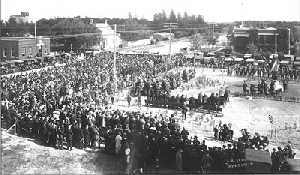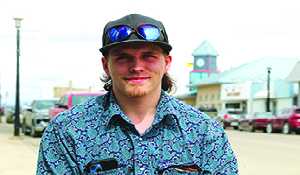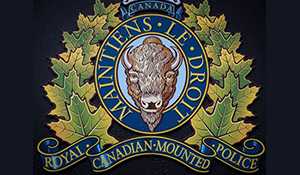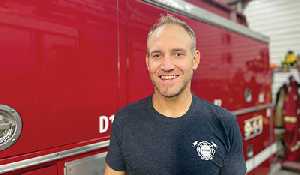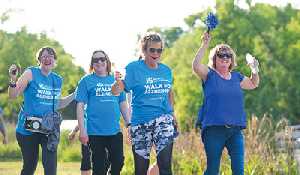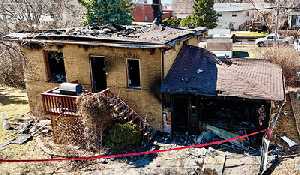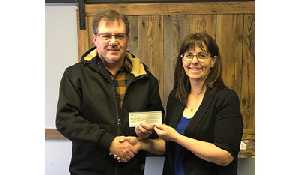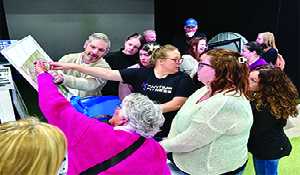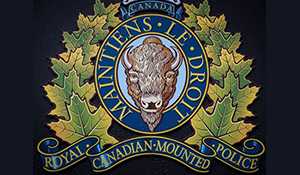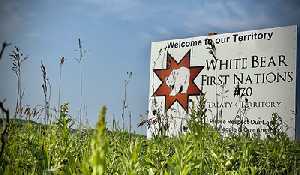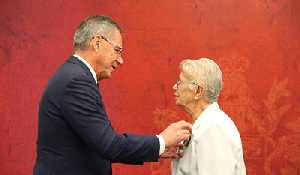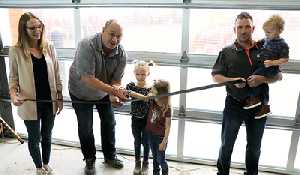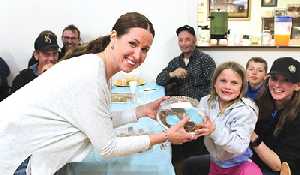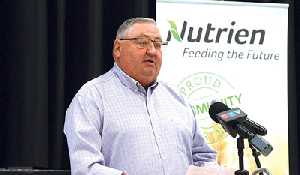WHL honours Sheldon Kennedy with Governors Award
May 27, 2020, 5:51 am
Rob Paul
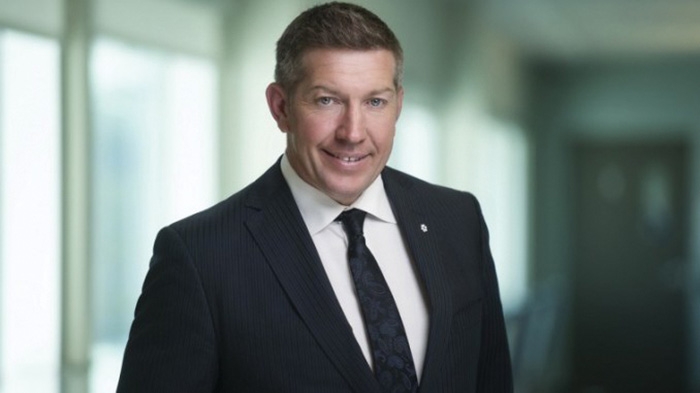

The Western Hockey League (WHL) has announced former Swift Current Broncos captain Sheldon Kennedy has been named the 2020 WHL Governors Award winner.
The WHL Governors Award is the league’s highest honour and has been awarded to others like Lanny McDonald and Ken King in the past.
Kennedy, who’s from Elkhorn, captained the 1988-89 Broncos team that won the Ed Chynoweth Cup and in three seasons with the team he put up 287 points.
In 1996 Kennedy — then in the NHL — spoke out against former Swift Current head coach Graham James for the sexual abuse he inflicted on him and others.
Having been drafted 80th overall in the 1988 NHL Entry Draft, Kennedy played eight years in the league with the Detroit Red Wings, Calgary Flames, and Boston Bruins and used his platform as a pro athlete to raise awareness about child abuse.
“As a young boy I dreamed of playing hockey and maybe, one day, in the WHL,” said Kennedy in a WHL press release. “I never would have thought that my dream would change so much. By working together we have no doubt made hockey and the WHL a leader in respect for all. I am grateful and honoured to be recognized for the WHL Governors Award and accept it on behalf of all those who have given their voice to positive change and for those leaders who have shown courage to implement that change.”
Kennedy’s work to raise awareness about abuse began in 1998 when he rollerbladed across Canada to raise money for those who have suffered from sexual abuse.
Kennedy has previously been honoured for his work with the Order of Canada, the Order of Manitoba, the Alberta Order of Excellence, the Hockey Canada Order of Merit, and the Order of Hockey in Canada.
Today Kennedy continues his work with the company he co-founded, Respect Group Inc. They work to ensure the prevention of bullying, abuse, harassment, and discrimination in sports, schools, and the workplace.
“For over 20 years, Sheldon Kennedy has been regarded as Canada’s leading advocate for a safe and positive environment for athletes,” said WHL Commissioner Ron Robinson in the press release. “Sheldon’s work in the respect area has been an inspiration, not only to athletes and sport organizations across Canada, but to millions of abuse survivors.”
“Sheldon had an outstanding junior hockey career, but his legacy will be measured by the contributions he has made to ensure young athletes can safely pursue their athletic endeavours without fear of harassment or abuse.”
For Kennedy, being award the highest honour by the league he made his name in is a surreal feeling, but the work he does means far more than the recognition.
“It’s a tremendous honour,” Kennedy told the World-Spectator. “I don’t think I ever set out to win awards or be recognized with an honour such as the WHL Governors Award. Especially if we look at my hockey career — yeah, I won some championships — it was marred by treatment centres, addiction problems, and abuse issues. I was always kind of marked as the troublemaker.”
“So for me, this represents hope for lots of people that think in life they don’t see a light at the end of the tunnel. What this shows them is that it doesn’t matter where you’re at or how far down you are, if you keep working at being better and taking care of yourself then you can achieve all kinds of things.”
Kennedy is thankful for his success in hockey because it gave him a platform to do more and help change the way society looks at major problems like child abuse.
“To me that’s (the off-ice work) more important than anything,” said Kennedy. “This is not a hockey issue, but because I played hockey it gave us a platform to make social change. I think hockey still being the number one sport in our country allowed for us to really push for change, not only in the game of hockey, but outside of hockey and sports.”
“You never achieve these types of feats yourself and we’ve had a lot of help. There’s been a lot of people helping. I think the most important piece here is we were able to work together and that’s the goal, to make a difference for the betterment of our kids and communities. I think the key to this is there was a willingness to work together, the hockey leadership along with Sheldon. We knew there was an issue that we needed to address and we looked at it as needing to address the problem in hockey, but also using it to be leaders outside of the game and being able to embrace that together was critical for where we’re at today 24 years later.”
The stigmatization of abuse and mental health have been a hard issue to overcome, but Kennedy says there’s been a complete shift in how these things are looked at and their overall impact.
“When I told my story in 1996 we didn’t even talk about child abuse really and we definitely didn’t talk about mental health or bullying,” said Kennedy. “The biggest thing I think that we know now is that we understand the impact. I think the impact is what is critical here.”
“Yes, there are incidents that happen and kids are hurt and people are hurt and people go on with their lives. The most important piece is that we understand the impact of those incidents. Early childhood trauma is the biggest contributor to mental health issues across our country and throughout the world. That comes from growing up in homes full of violence or addiction, kids being sexually abused, neglect, the list goes on. But now I think we understand the invisible damage that comes from these incidents.”
The educating of people all across Canada on topics such as abuse has been the most important aspect of working for change through the Respect Group.
“If we look at what we’ve been able to do with Respect in Sport through education — because I think our best tool and best defence is knowledge to empower the bystander and focus on the 98 per cent that are really good people,” said Kennedy. “When we look at the issues we represent — abuse, bullying, harassment, discrimination, etc. — a lot of times those issues in our communities carry a lot of fear. They carry fear because a lot of the time we are not sure if it is or if it isn’t, what do we do, where do we go? So I think creating the confidence to be able to have conversations around those issues is critical.”
“I think if you look at what we’ve done — we’ve trained over 1.4 million coaches, parents, and sport leaders across this country — as we move forward through life I don’t think there’s a finish line with this stuff. I think we will continually learn and continually better understand. We’ve evolved and morphed over the last 24 years as we’ve better understood the issues and better understood how to teach about the issues. I think we have to keep learning and keep this in the forefront because what we’re talking about is a cultural change and shift in how we address these issues within our communities and that is ongoing, it’s not a one-and-done.”
With increased awareness of abuse, Kennedy has seen a major shift in the prioritization of prevention programs across Canada. From schools to sports to businesses, prevention programs have become a necessity.
“The best thing is, when we started this work it was Sheldon Kennedy and basically only Sheldon Kennedy,” said Kennedy. “What I’ve seen now is there are so many people that have found a voice or know we need to make it better or are advocates in their own way and that is awesome.”
“I think the best part about it is — if you look at organizations or society — back when we started this work if you had a prevention program in place that dealt with abuse, bullying, harassment, or discrimination that meant you had problems. The public wouldn’t signup because that would mean they have a problem. There’s been a major shift to saying if you don’t have prevention programs and you’re not addressing this on the front end in a positive way in a prevention manner then we’re not signing up.”
“I think that major shift is critical and we’ve really taken these types of issues being dealt with in a policy and procedure manner and taken them out of that column and put them in the column of priority within organizations,” said Kennedy. “In other words, this is a critical part of the way we operate our organization and if you’re not going to take the training then you’re not welcome. I think that’s huge.”
The change over the last two decades from the way prevention and education on abuse are looked at is what gives Kennedy hope that Canada and the rest of the world will continue to move forward on these topics.
“When we started, when my story broke, none of this stuff was a priority,” said Kennedy. “There was no training anywhere. We rollerbladed across the country and donated a million dollars to the Canadian Red Cross because it was the only prevention training program that we could find and we worked with them to create Respect in School and they reached over five million kids in the country across schools at the time. They also wrote the Speak Out program for Hockey Canada and hockey was the only organization at the time — back in 1997 — that had any type of prevention training going on.”
“If you look at the shift — we started training 24 years ago — how many of those kids that we reached in schools are now young parents? So it’s normal now to think, ‘why wouldn’t we be training on this? Of course it’s important.’ There’s been that shift that said, ‘if this isn’t in place, then we’re not signing our kids up.’ It’s just become second nature and there’s an expectation that this stuff is in place. That’s the shift that has been huge for us.”


